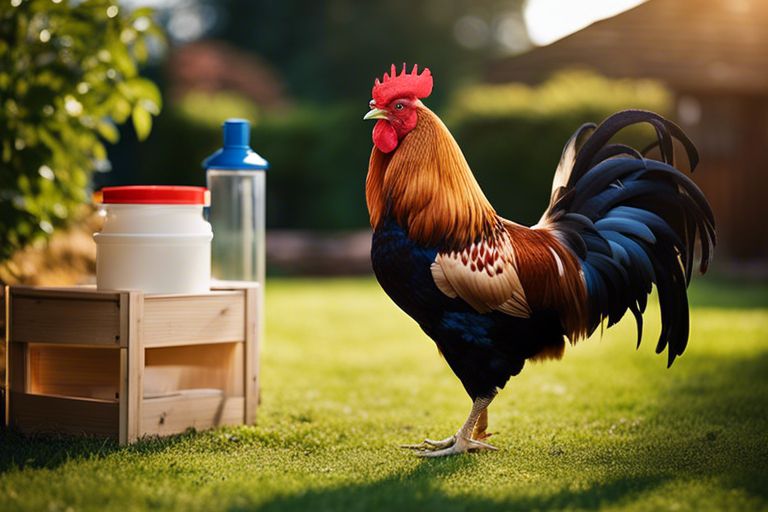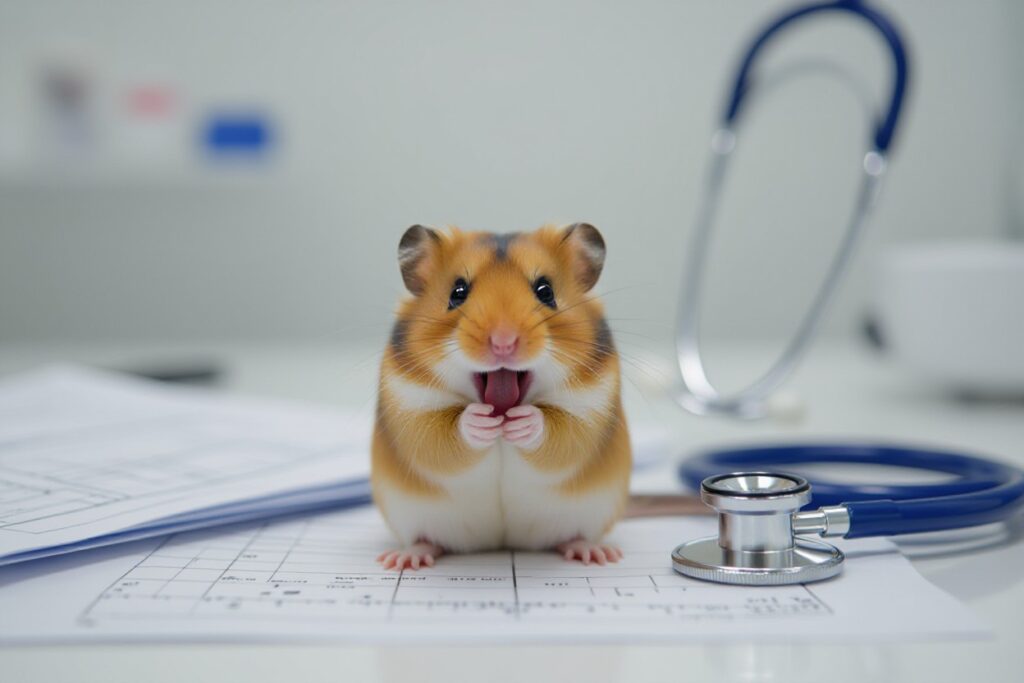There’s no denying the importance of ensuring the health and well-being of your roosters, especially if you keep them for breeding, showing, or simply as beloved pets. Just like any other animal, roosters can be prone to certain common health issues that may require attention and care. In this informative guide, we will explore ways to prevent and treat these common health problems to ensure your roosters lead happy and healthy lives.
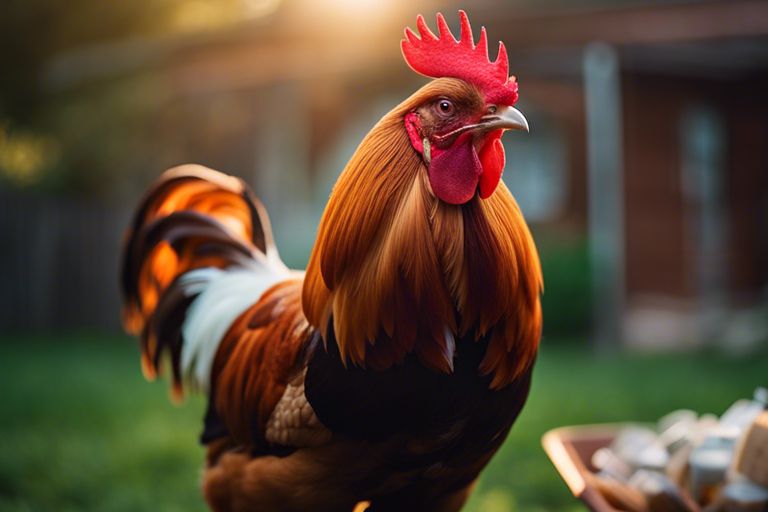
Preventing Health Issues in Roosters
Proper Housing and Environment
Preventing health issues in roosters starts with providing them with proper housing and an ideal environment. Ensure that the coop is spacious enough to allow for movement and roosting. Good ventilation and sufficient lighting are also crucial to prevent respiratory issues and promote overall well-being. Regular cleaning of the coop and nesting areas can help prevent the spread of diseases and parasites.
Nutrition and Diet Considerations
Preventing health issues in roosters also involves paying attention to their nutrition and diet. A well-balanced diet that includes a combination of grains, protein, vitamins, and minerals is necessary for their health. Provide access to fresh water at all times and avoid feeding them with excessive treats or foods that are high in salt or sugar.
To ensure that your roosters are receiving proper nutrition, consider incorporating a commercial poultry feed into their diet. These feeds are specially formulated to meet the nutritional needs of chickens and can help prevent deficiencies that may lead to health issues.
Recognizing Signs of Illness
Behavioral Indicators
Illness in roosters can manifest through various behavioral changes. If you notice a normally active rooster becoming lethargic, withdrawn, or exhibiting unusual aggression, it could be a sign of an underlying health issue. Changes in eating habits, such as a loss of appetite or excessive drinking, should also alert you to a potential problem.
Physical Symptoms
On the physical front, visible symptoms can provide important clues about your rooster’s health. Look out for abnormal discharge from the eyes, nostrils, or vent. Changes in feather condition, such as ruffled feathers or bald spots, can indicate a problem. Swollen joints, difficulty breathing, or unusual droppings should not be ignored.
Understanding these behavioral and physical indicators can help you identify a sick rooster early on, allowing for prompt treatment and a better chance of recovery. Regular observation and knowledge of your rooster’s usual behavior and appearance are key in detecting any deviations that may signal a health issue.
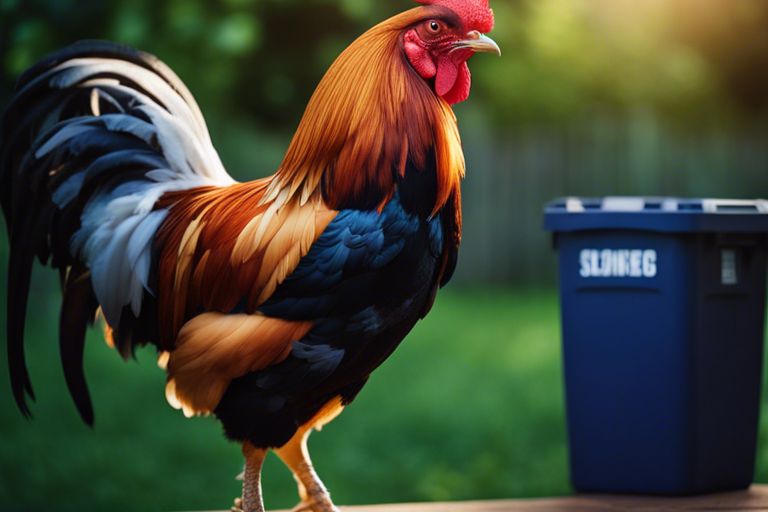
Treating Common Ailments
Parasitic Infestations
Infestations of parasites such as mites, lice, and worms can be common in roosters and can lead to serious health issues if left untreated. To treat parasitic infestations, it is crucial to regularly inspect your roosters for any signs of parasites, such as feather loss, irritation, or decreased egg production. Utilize appropriate treatments such as medicated feed, dust baths, or topical solutions recommended by your veterinarian to eliminate the parasites and prevent reinfestation.
Respiratory Conditions
An vital aspect of rooster health is maintaining proper respiratory function. Respiratory conditions, such as infectious bronchitis, can significantly impact a rooster’s well-being. Ensure your roosters are housed in well-ventilated areas and avoid overcrowding to minimize the risk of respiratory illnesses. If a rooster exhibits symptoms like coughing, nasal discharge, or labored breathing, consult with a poultry veterinarian for accurate diagnosis and treatment options.
Common ailments such as parasitic infestations and respiratory conditions can greatly affect the health of roosters. By promptly addressing these issues with appropriate treatments and care, you can help your roosters maintain optimal health and well-being.
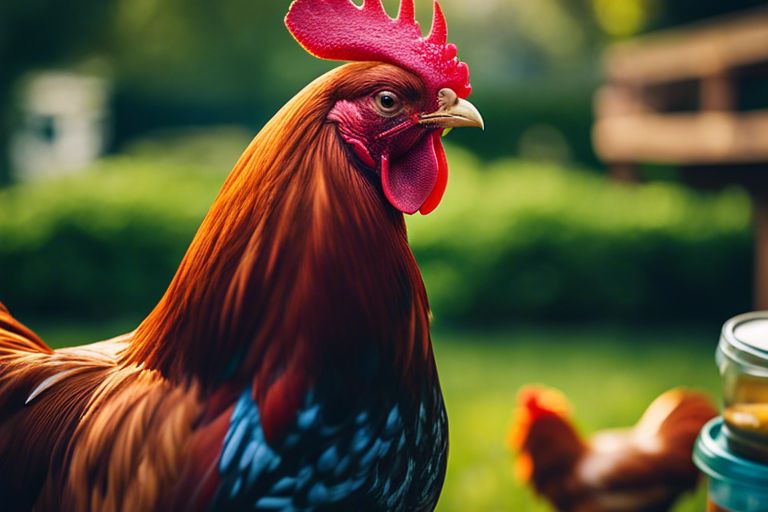
Advanced Rooster Care
- Vaccination Protocols
Vaccination Protocols
Advanced rooster care includes a strict vaccination protocol to protect your flock from common diseases. Vaccinations are crucial in preventing outbreaks and maintaining the overall health of your roosters. Consult with a poultry veterinarian to determine the appropriate vaccines and schedule for your roosters.
- Stress Management and Mental Well-being
Stress Management and Mental Well-being
For advanced rooster care, prioritizing stress management and mental well-being is necessary. Roosters are sensitive creatures and can easily become stressed, leading to various health issues. Provide a peaceful and enriching environment, ensure they have enough space, exercise, and social interaction. Regular check-ups and observation can help you identify any signs of stress early on.
Final Words
Ultimately, understanding how to prevent and treat common health issues in roosters is important for any poultry owner. By maintaining a clean and safe living environment, providing a balanced diet, and regularly monitoring your roosters for signs of illness, you can help prevent many common health issues from arising. In the event that health issues do occur, promptly seeking veterinary care and following their treatment recommendations can greatly improve the chances of a successful recovery. Be mindful of, early detection and proactive care are key in ensuring the health and well-being of your feathered friends. By staying informed and attentive, you can keep your roosters healthy and happy for years to come.
FAQ
Q: What are common health issues in roosters?
A: Common health issues in roosters include respiratory infections, mites and lice infestation, crop issues, and egg binding.
Q: How can I prevent respiratory infections in my roosters?
A: To prevent respiratory infections in roosters, ensure proper ventilation in the coop, keep the living area clean, and avoid overcrowding.
Q: What are the signs of mites and lice infestation in roosters?
A: Signs of mites and lice infestation in roosters include feather loss, decreased egg production, irritation, and visible bugs on the skin.
Q: How can I treat mites and lice infestation in my roosters?
A: To treat mites and lice infestation in roosters, use poultry dust or sprays specifically designed to eliminate these parasites. Clean the coop thoroughly to prevent reinfestation.
Q: What should I do if my rooster is experiencing crop issues?
A: If your rooster is experiencing crop issues such as impacted crop, sour crop, or pendulous crop, consult a veterinarian for proper diagnosis and treatment.
Q: How can I prevent egg binding in my roosters?
A: To prevent egg binding in roosters, provide a balanced diet, ensure they have access to calcium sources, and monitor their reproductive health closely.
Q: When should I seek professional help for my rooster’s health issues?
A: It is advisable to seek professional help from a veterinarian if you notice persistent health issues in your rooster, such as severe injuries, unusual behavior, or symptoms that do not improve with home remedies.
